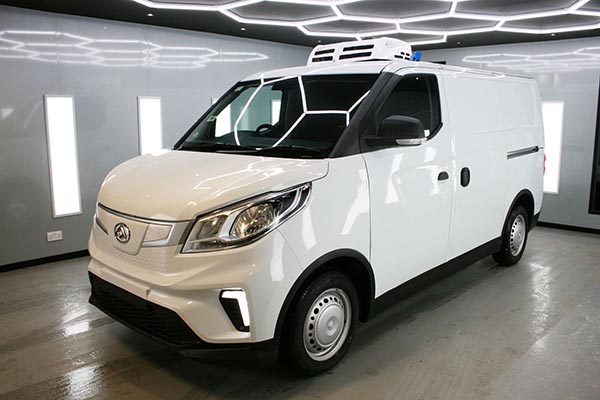Innovative Cold Chain Solutions: Van Refrigeration Units Leading the Future of Refrigerated Transport
As the global demand for food, pharmaceuticals, and other perishable goods continues to rise, the transportation industry is facing increasing pressure to adopt efficient and environmentally friendly cold chain solutions. In this context, Van Refrigeration Units have become the preferred choice for many businesses. These advanced refrigeration systems not only improve transportation efficiency but also help companies reduce operating costs and their environmental impact. This article explores the latest developments in Van Refrigeration Units and their critical role in the industry.

What Are Van Refrigeration Units?
Van Refrigeration Units are refrigeration systems specifically designed for small cargo vans and box trucks. Their primary function is to maintain a consistent temperature inside the vehicle, ensuring the safety and freshness of transported goods, particularly perishable items like food, pharmaceuticals, and temperature-sensitive products. Van Refrigeration Units typically operate through electric compressors and cooling systems, offering efficient and reliable temperature control with various settings to accommodate different cargo transportation needs.
Advantages of Van Refrigeration Units
Enhanced Transportation Efficiency
One of the key advantages of Van Refrigeration Units is their ability to provide efficient cold storage without increasing transportation time. With continuous technological advancements, these systems not only offer precise temperature control but also achieve the desired temperature in a short period, ensuring that goods remain in optimal condition during transport.
Energy-Efficient and Environmentally Friendly
Modern Van Refrigeration Units are designed with energy efficiency and environmental sustainability in mind. They use eco-friendly refrigerants and high-efficiency electric compressors, significantly reducing energy consumption. Compared to traditional fuel-powered refrigeration systems, electric Van Refrigeration Units generate much lower carbon emissions, complying with the increasingly stringent environmental regulations worldwide. This energy-efficient and green feature not only helps businesses lower operational costs but also enhances their brand image as eco-conscious entities.
Lower Maintenance Costs
Van Refrigeration Units are designed to be more streamlined and require less frequent maintenance. Compared to large-scale cold chain systems, these units incur lower upkeep costs. Whether used for urban deliveries or long-distance transportation, businesses can benefit from reduced downtime and lower repair expenses, enhancing business continuity and profitability.
